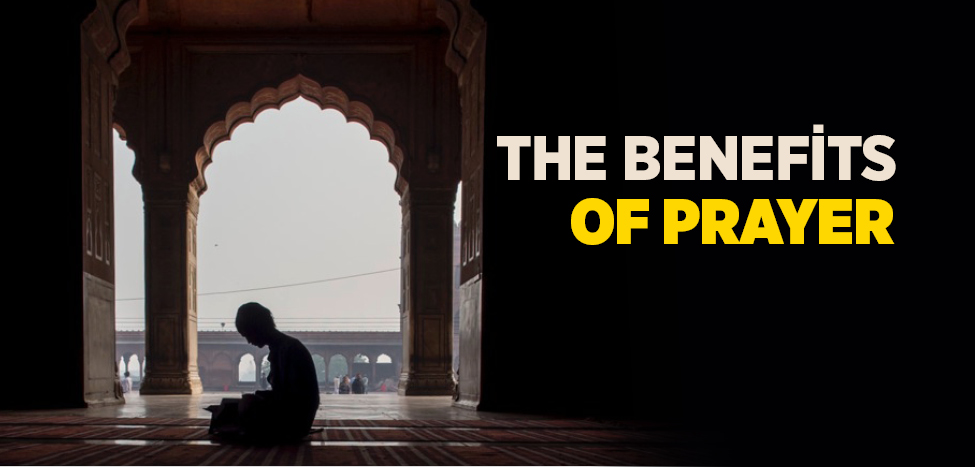What are the benefits of prayer? Why is prayer important?
- Prayer helps the believers’ life get organized and strengthens their willpower: Ritual prayer is a continuous obligation that instills discipline and organization into one’s lifestyle. It liberates the person from the energy and time consuming lifestyle that he is captive in.
The frequently recited verses from the Qur’an inculcate fear and consciousness of Allah and strengthen the faith of the believer. Ritual Prayer (salat) protects a person from evil and bad temptation. Salat disciplines the soul, and beautifies the character. It prevents carelessness. It shields a person from the whispers of Satan. Allah says in the Qur’an: “Recite what is sent of the Book by revelation to you, and establish regular Prayer: for Prayer restrains from shameful and unjust deeds?” (al-Ankabut, 29: 45)
- Salat strengthens the social unity and solidarity: In a society formed from believers performing their ritual prayers, daily life is directed by a devotional life. Prayer inculcates the feeling of unity and togetherness among the members of such society and strengthens love for one another and the feeling of brotherhood. No matter what color, language, race or background people are from, all Muslims are aligned together during prayer. During the congregational prayers such as festival (Eid) and Friday (Jumu’ah) prayers, Muslims stand side by side in prayer. This is a reflection of brotherhood, unity and strength in the face of the enemy.
- Salat teaches gratitude to Allah, helps a person to do good deeds and expiates small sins: It brings a person closer to Allah. A person who prays experiences the serenity and happiness of fulfilling his obligation towards Allah. The Prophet (pbuh) said: “Five daily prayers and Friday from one Friday prayer to (the next) Friday prayer is an expiation (of the sins committed in between their intervals) if major sins are not committed …”[1]
Allah promises to forgive a person who prays the ritual prayer in the best manner, and carries out the ruku’ (bowing down), sujud (prostration) and other mandatory acts of prayer properly. The Prophet (pbuh) said;
“Tell me, “If there was a river at the door of anyone of you and he took a bath in it five times a day would you notice any dirt on him?” They said, “Not a trace of dirt would be left.” The Prophet (pbuh) added, “That is the example of the five prayers with which Allah blots out (annuls) evil deeds.”[2]
- Ritual Prayer (Salat) provides many benefits to a believer’s health: The actions performed during prayer strengthen the muscles, bones and limbs. Prayer ensures a clean and healthy body, as wudu’ (ablution) is a prerequisite of prayer whereby specific limbs are washed several times a day. Additionally, for a prayer to be considered valid, the place for prayer, clothing of the praying person and his body should all be clean.
[1] Muslim, Taharah 14, 15; al-Tirmidhi, Mawakit, 46
[2] Al-Bukhari, Mawakit, 6; al-Nasai, Salat, 7
Source: Fiqh1 (According To The Shafi’i School Of Islamic Law), Erkam Publications





